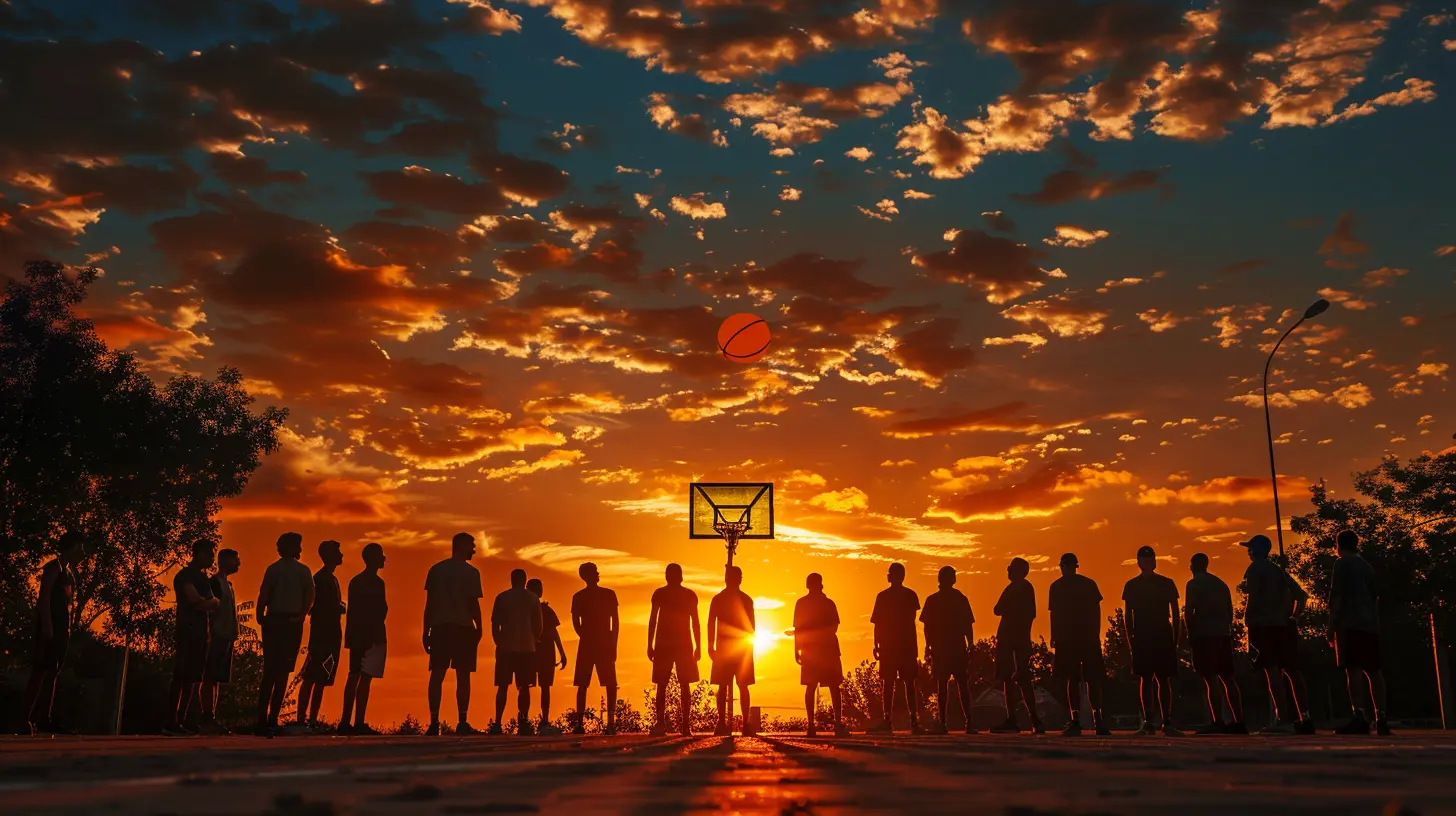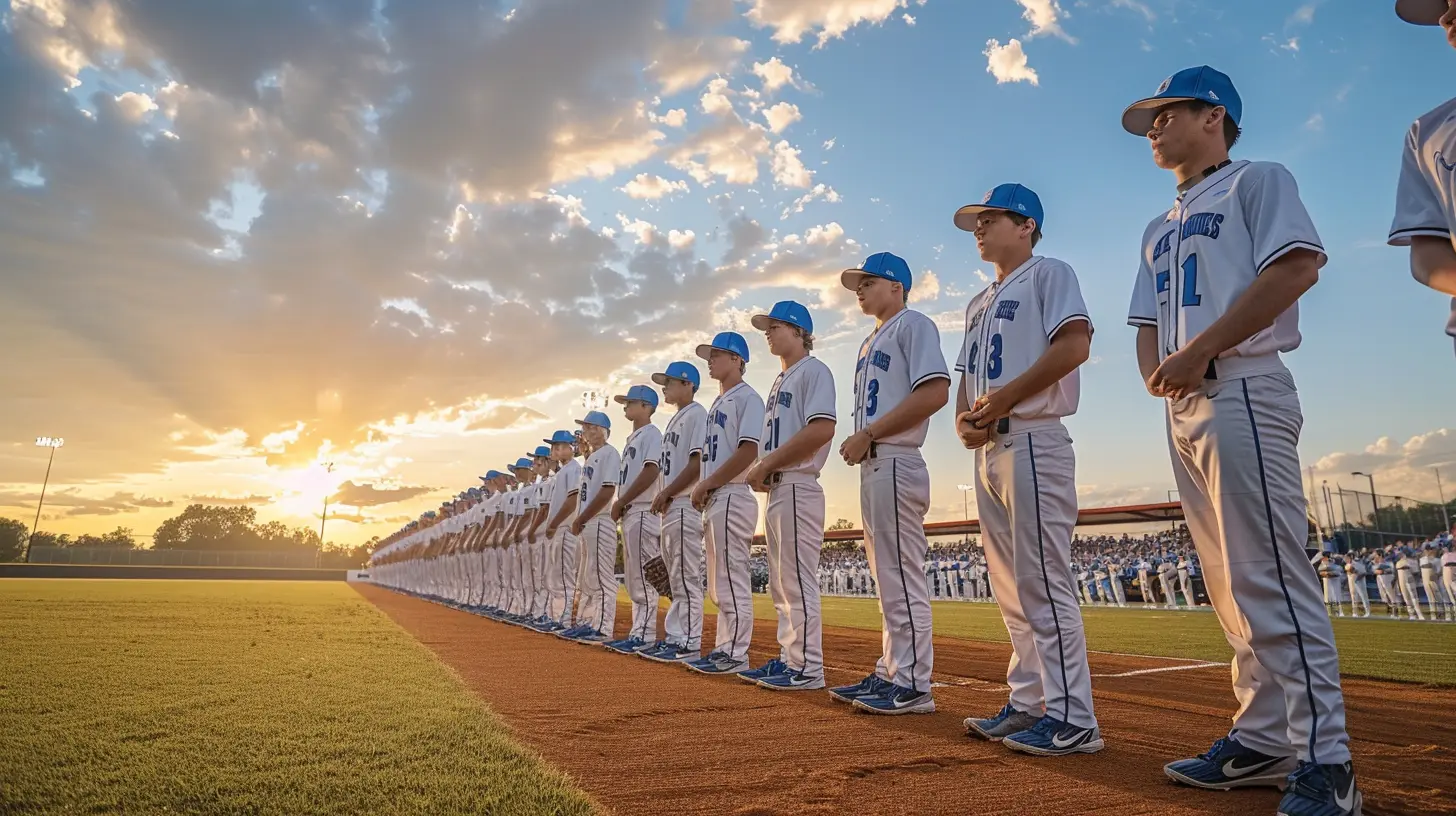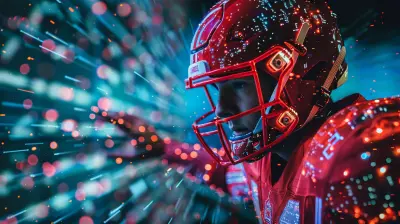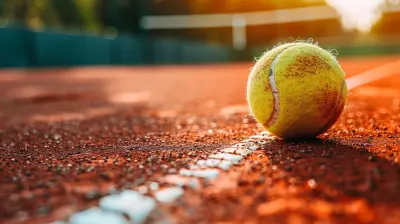Building Team Chemistry: Why It Matters in High School Sports
13 June 2025
In the world of high school sports, we often focus on things like physical conditioning, skill development, and game strategies. While those are undoubtedly important, there’s one aspect that often gets overlooked but has a massive impact on a team's success: team chemistry. You’ve probably heard the term thrown around by coaches, athletes, and sports commentators, but what does team chemistry really mean? More importantly, why does it matter so much, especially at the high school level?
If you’ve ever been part of a high school sports team that's clicking on all cylinders, you know exactly what I’m talking about. When a team has chemistry, they move as one. Every pass, every play, every decision feels almost automatic. But when it’s missing? It’s like trying to solve a puzzle with pieces from different sets.
In this article, we’re diving deep into why team chemistry is so crucial in high school sports and how it can make or break a season. Ready to get started? Let’s roll!

What is Team Chemistry?
Team chemistry is kind of like the secret sauce that holds a group of athletes together. It’s the unspoken bond, the trust, and the understanding between teammates that helps them work toward a common goal. It’s not just about liking each other (although that helps); it’s about knowing each other.Think of team chemistry as the glue that keeps everything together. Without it, even the most talented players can struggle to function as a unit. When you have strong team chemistry, players anticipate each other’s moves, communicate effectively, and are willing to make sacrifices for the good of the group.
The Ingredients of Team Chemistry
So, what exactly makes up good team chemistry? It’s not something you can measure with stats or a checklist, but there are certainly a few key ingredients that contribute to it:1. Trust: Teammates need to believe in each other’s abilities and decisions. If a player has the ball, their teammates need to trust that they’ll make the right play.
2. Communication: A team that communicates well can adjust to any situation, whether it’s calling out defensive assignments or motivating each other after a mistake.
3. Respect: Respect for teammates and coaches creates a positive environment where everyone feels valued and heard.
4. Shared Goals: Every player needs to be on the same page when it comes to what they’re working toward. Whether it’s winning a championship or simply improving as a team, everyone has to buy into the goal.
5. Support: When things go wrong, and they will, how a team responds is crucial. Do the players point fingers, or do they lift each other up and learn from their mistakes?

Why Team Chemistry Matters in High School Sports
Now that we know what team chemistry is, let’s talk about why it’s so important in high school sports. High school athletes are still developing both physically and mentally, and having a strong team dynamic can be the difference between a successful season and a disappointing one.1. It Boosts Performance
First and foremost, good team chemistry leads to better performance on the field or court. Teams with strong chemistry are more cohesive. They move together, making fewer mistakes and taking advantage of opportunities that would otherwise slip through the cracks. Think of it like a well-oiled machine: when all the parts are working together, the whole thing runs smoother.When players trust each other, they’re more likely to take risks, knowing their teammates have their back. A soccer player might make a tricky pass, confident that their teammate will be in the right spot. A basketball player might take a shot, knowing the rebound will be covered. This kind of synergy can lead to some truly magical moments in sports.
2. It Builds Resilience
High school sports are filled with ups and downs. There will be wins, losses, injuries, and setbacks. Teams with strong chemistry can weather the storm better than those without it. When things get tough, a team with good chemistry doesn’t fall apart—they come together. They support each other emotionally and mentally, and they’re more likely to bounce back from adversity.For example, after a tough loss, a team with poor chemistry might start blaming each other, which only makes things worse. But a team with strong chemistry will pick each other up, learn from the experience, and come back stronger. It’s not just about being good teammates; it's about building resilience both on and off the field.
3. It Enhances Enjoyment and Motivation
Let’s be real: sports should be fun. If players aren’t enjoying themselves, it’s hard to stay motivated. Good team chemistry creates an environment where players actually want to be there. They look forward to practice, they enjoy competing, and they enjoy spending time with their teammates. When the locker room vibe is positive, everything else flows from there.When players enjoy being part of a team, they’re more likely to give their best effort, not just for themselves, but for their teammates. They’re motivated to improve because they don’t want to let the team down. This is especially important in high school, where athletes are balancing academics, social lives, and sports. If they don’t enjoy being part of the team, it’s easy for their commitment to wane.
4. It Teaches Life Skills
High school is a critical time for personal development, and sports can play a major role in shaping who a young person becomes. Team chemistry teaches athletes essential life skills like communication, collaboration, and conflict resolution. These are skills that will serve them not just in sports, but in their future careers and relationships.When players learn to work together, even when they don’t always agree, they’re learning how to navigate real-world situations. High school sports are about more than just the game; they’re about preparing young people for life outside of sports.

How to Build Team Chemistry
So, we’ve established that team chemistry is essential. But how do you actually build it? It’s not something that just happens overnight. It takes time, effort, and a little bit of strategy. Here are a few ways coaches and players can foster better chemistry:1. Team Bonding Activities
One of the easiest ways to build chemistry is through team bonding activities. This could be anything from a team dinner to a weekend retreat. The idea is to get players to spend time together outside of the typical practice and game settings. When players get to know each other as people, not just teammates, they form stronger connections.You could also try activities that require teamwork, like a ropes course or a scavenger hunt. These experiences force players to work together in a different context, which can help strengthen their bond on the field as well.
2. Open Communication
Encouraging open communication is another key factor in building team chemistry. Coaches should create an environment where players feel comfortable speaking up, whether it’s to offer feedback, share ideas, or address conflicts.Players should also be encouraged to communicate with each other, both on and off the field. Clear communication during games is obviously important, but so is talking through issues that might arise within the team. If something isn’t working, it’s better to address it sooner rather than let it fester.
3. Lead by Example
Coaches play a huge role in setting the tone for team chemistry. If a coach fosters a positive, supportive environment, players are more likely to follow suit. On the flip side, if a coach is constantly negative or plays favorites, it can undermine the team dynamic.Team leaders, like captains, are also crucial in this area. They need to model good behavior by being positive, inclusive, and supportive of their teammates. When the leaders of the team set the right example, it trickles down to everyone else.
4. Celebrate Successes and Learn from Failures
It’s important to celebrate your team’s successes, no matter how small. Whether it’s a big win or a well-executed play during practice, acknowledging these moments helps build confidence and camaraderie.At the same time, teams need to learn how to handle failure together. Instead of getting discouraged by a loss, use it as an opportunity to grow. When players understand that failure is part of the process, they’re more likely to stick together and keep pushing forward.

The Role of Coaches in Building Team Chemistry
Coaches are the architects of team chemistry. They set the tone for the entire team, and their approach can make or break the dynamic. A great coach understands the importance of chemistry and works to foster it through trust, communication, and leadership.1. Creating a Positive Environment
Coaches need to create an environment where players feel safe, respected, and valued. This doesn’t mean being soft or lowering expectations, but it does mean treating players like people, not just athletes. When players feel like they matter, they’re more likely to buy into the team’s goals.2. Managing Personalities
Every team is made up of different personalities, and it’s a coach’s job to figure out how to manage them effectively. Some players may be natural leaders, while others might need a little more encouragement. A good coach knows how to bring out the best in each player while keeping the team’s chemistry intact.Conclusion
At the end of the day, team chemistry is about more than just winning games (though that’s a nice bonus). It’s about creating an environment where players trust each other, support each other, and work together toward a common goal. In high school sports, where athletes are still learning and growing, strong team chemistry can have a lasting impact, both on and off the field.So, whether you’re a coach, player, or parent, don’t underestimate the power of team chemistry. It could be the difference-maker in your season—and in the lessons athletes carry with them for the rest of their lives.
all images in this post were generated using AI tools
Category:
High School SportsAuthor:

Frankie Bailey
Discussion
rate this article
2 comments
Maverick McInerney
In the realm of high school sports, team chemistry is the invisible thread weaving players together. But what secrets lie beneath the surface? As bonds form and tensions rise, the true test isn’t just on the field—it's the intangibles that could redefine victory or defeat.
June 20, 2025 at 2:45 AM

Frankie Bailey
Absolutely! Team chemistry is crucial, as it influences communication, trust, and resilience, ultimately impacting performance and success in high school sports.
Isla McCollum
Absolutely love this piece! Building team chemistry is the secret sauce for success in high school sports. It fosters trust, boosts morale, and creates lasting friendships. When players connect both on and off the field, they elevate the game and create unforgettable memories. Go team! 🌟🏆
June 14, 2025 at 3:04 AM

Frankie Bailey
Thank you! I completely agree—team chemistry truly transforms the game and creates lasting bonds. Go team! 🌟🏆


